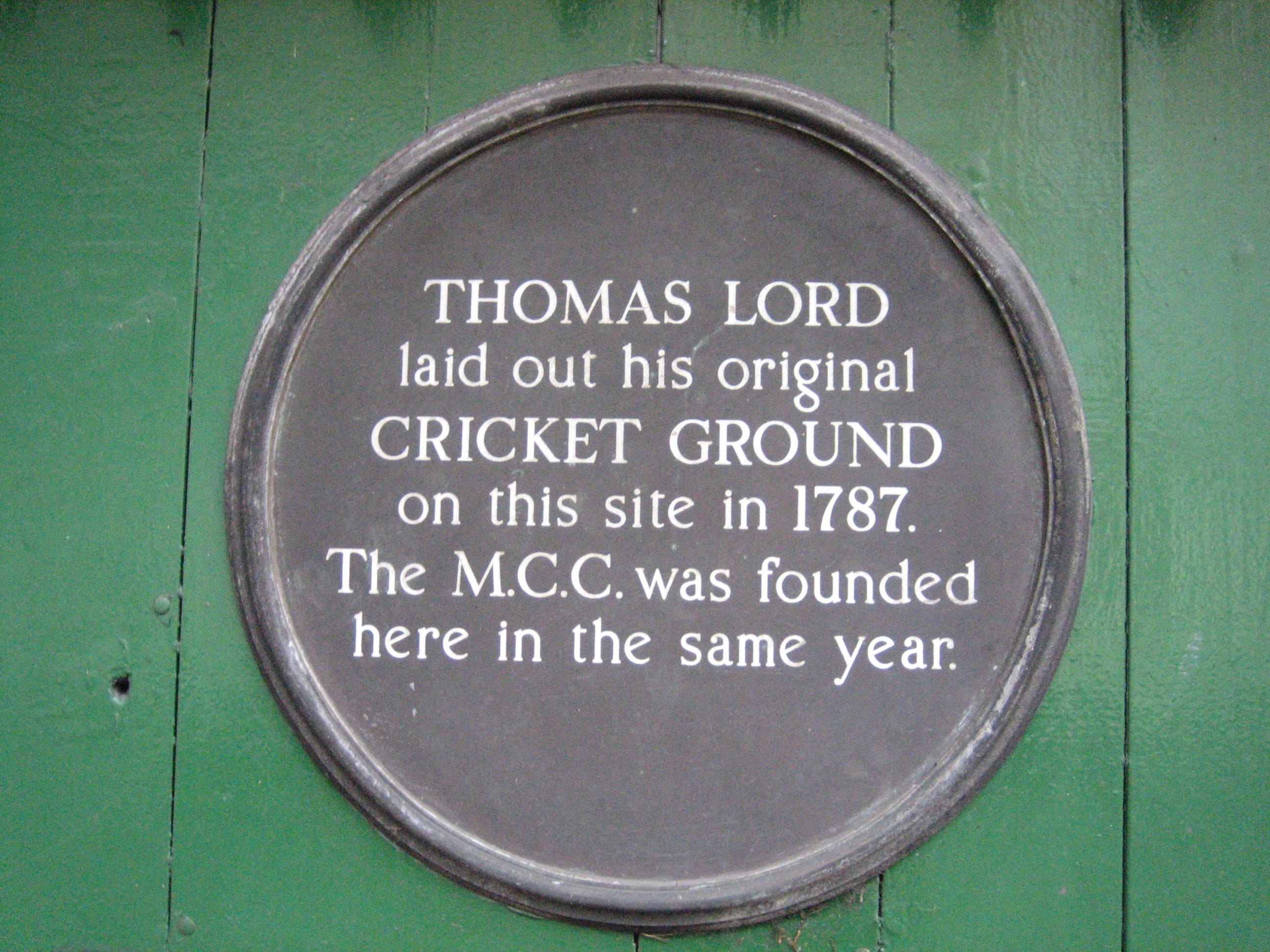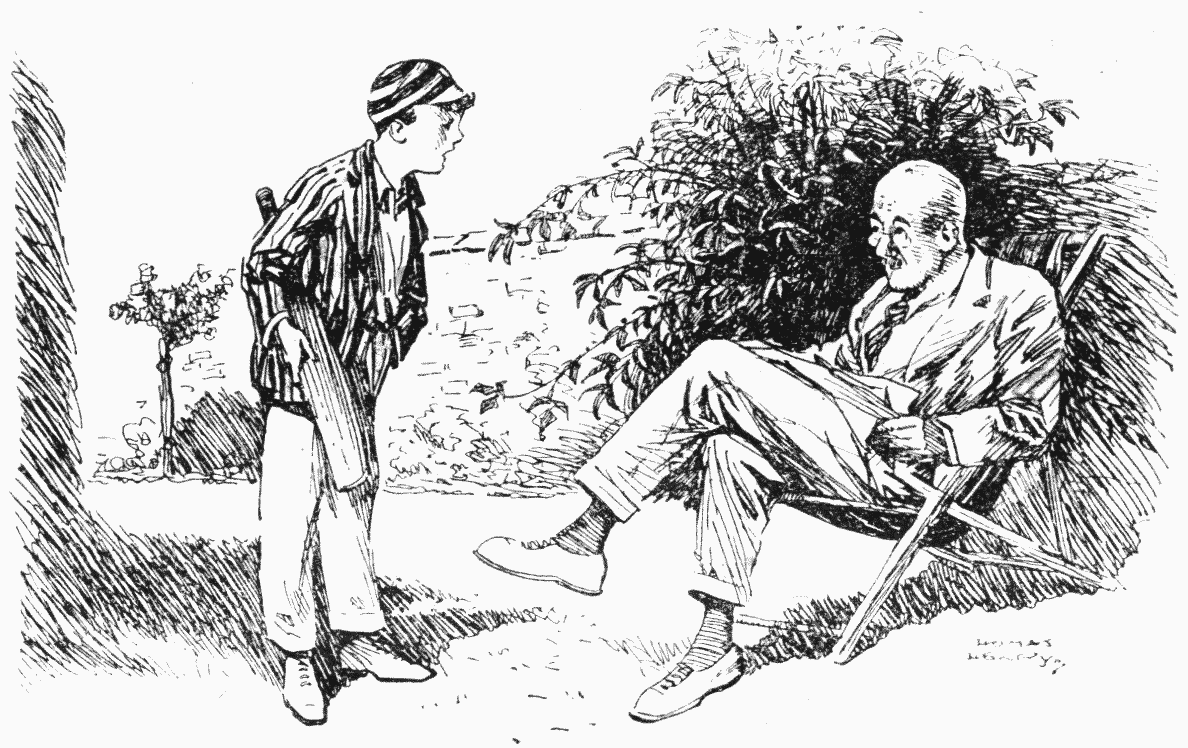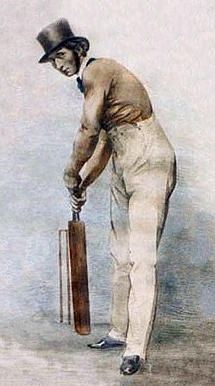|
John Boorman (cricketer)
John Boorman (c. 1754 – 1 August 1807) was an English cricketer whose known career spanned 26 seasons from 1768 to 1793.Haygarth, p. 3. In ''Scores & Biographies'', Arthur Haygarth recorded that he found a reference to Boorman "in another account" (re a single wicket match in 1772) which called him James, but Haygarth was convinced that the correct name was John which recurred. Haygarth discovered that Boorman was "probably" born at Cranbrook in Kent but may have resided for many years at Sevenoaks, though he certainly died at Ashurst in Sussex, where he spent his latter years as a farmer. Boorman's year of birth is an estimate based on evidence found by Haygarth that he was 53 when he died and Haygarth made a comment that Boorman "began playing in great matches very young". Boorman is believed to have been a left-handed batsman but it is not known if he bowled left arm. Like all bowlers of the time, he was underarm but his pace is unknown. As a fielder, he was general ... [...More Info...] [...Related Items...] OR: [Wikipedia] [Google] [Baidu] |
Cricket
Cricket is a bat-and-ball game played between two teams of eleven players on a field at the centre of which is a pitch with a wicket at each end, each comprising two bails balanced on three stumps. The batting side scores runs by striking the ball bowled at one of the wickets with the bat and then running between the wickets, while the bowling and fielding side tries to prevent this (by preventing the ball from leaving the field, and getting the ball to either wicket) and dismiss each batter (so they are "out"). Means of dismissal include being bowled, when the ball hits the stumps and dislodges the bails, and by the fielding side either catching the ball after it is hit by the bat, but before it hits the ground, or hitting a wicket with the ball before a batter can cross the crease in front of the wicket. When ten batters have been dismissed, the innings ends and the teams swap roles. The game is adjudicated by two umpires, aided by a third umpire and match referee ... [...More Info...] [...Related Items...] OR: [Wikipedia] [Google] [Baidu] |
Bourne Cricket Club
Bourne Cricket Club was based at Bishopsbourne, near Canterbury in Kent, and played several major matches in the 18th century when it was one of the teams which effectively represented Kent as a county. Its home venue was Bourne Paddock. Bourne was patronised by Sir Horatio Mann, owner of the Bourne Park House estate, and was in reality his own private club. When Sir Horatio relocated to Dandelion, near Margate, the Bourne club ceased to exist. History Bourne is first recorded as a cricket team on Monday 29 September 1766 when it played Dartford at Bishopsbourne. . Retrieved 26 April 2010. Details of the match, including the result, are unknown. Bourne played |
Essex Cricketers
Essex () is a county in the East of England. One of the home counties, it borders Suffolk and Cambridgeshire to the north, the North Sea to the east, Hertfordshire to the west, Kent across the estuary of the River Thames to the south, and Greater London to the south and south-west. There are three cities in Essex: Southend, Colchester and Chelmsford, in order of population. For the purposes of government statistics, Essex is placed in the East of England region. There are four definitions of the extent of Essex, the widest being the ancient county. Next, the largest is the former postal county, followed by the ceremonial county, with the smallest being the administrative county—the area administered by the County Council, which excludes the two unitary authorities of Thurrock and Southend-on-Sea. The ceremonial county occupies the eastern part of what was, during the Early Middle Ages, the Anglo-Saxon Kingdom of Essex. As well as rural areas and urban areas, it forms part of ... [...More Info...] [...Related Items...] OR: [Wikipedia] [Google] [Baidu] |
English Cricketers
English usually refers to: * English language * English people English may also refer to: Peoples, culture, and language * ''English'', an adjective for something of, from, or related to England ** English national identity, an identity and common culture ** English language in England, a variant of the English language spoken in England * English languages (other) * English studies, the study of English language and literature * ''English'', an Amish term for non-Amish, regardless of ethnicity Individuals * English (surname), a list of notable people with the surname ''English'' * People with the given name ** English McConnell (1882–1928), Irish footballer ** English Fisher (1928–2011), American boxing coach ** English Gardner (b. 1992), American track and field sprinter Places United States * English, Indiana, a town * English, Kentucky, an unincorporated community * English, Brazoria County, Texas, an unincorporated community * Engl ... [...More Info...] [...Related Items...] OR: [Wikipedia] [Google] [Baidu] |
1807 Deaths
Eighteen or 18 may refer to: * 18 (number), the natural number following 17 and preceding 19 * one of the years 18 BC, AD 18, 1918, 2018 Film, television and entertainment * 18 (film), ''18'' (film), a 1993 Taiwanese experimental film based on the short story ''God's Dice'' * Eighteen (film), ''Eighteen'' (film), a 2005 Canadian dramatic feature film * 18 (British Board of Film Classification), a film rating in the United Kingdom, also used in Ireland by the Irish Film Classification Office * 18 (Dragon Ball), 18 (''Dragon Ball''), a character in the ''Dragon Ball'' franchise * "Eighteen", a 2006 episode of the animated television series ''12 oz. Mouse'' Music Albums * 18 (Moby album), ''18'' (Moby album), 2002 * 18 (Nana Kitade album), ''18'' (Nana Kitade album), 2005 * ''18...'', 2009 debut album by G.E.M. Songs * 18 (5 Seconds of Summer song), "18" (5 Seconds of Summer song), from their 2014 eponymous debut album * 18 (One Direction song), "18" (One Direction song), from the ... [...More Info...] [...Related Items...] OR: [Wikipedia] [Google] [Baidu] |
1750s Births
Year 175 ( CLXXV) was a common year starting on Saturday (link will display the full calendar) of the Julian calendar. At the time, it was known as the Year of the Consulship of Piso and Iulianus (or, less frequently, year 928 ''Ab urbe condita''). The denomination 175 for this year has been used since the early medieval period, when the Anno Domini calendar era became the prevalent method in Europe for naming years. Events By place Roman Empire * Marcus Aurelius suppresses a revolt of Avidius Cassius, governor of Syria, after the latter proclaims himself emperor. * Avidius Cassius fails in seeking support for his rebellion and is assassinated by Roman officers. They send his head to Aurelius, who persuades the Senate to pardon Cassius's family. * Commodus, son of Marcus Aurelius and his wife Faustina, is named Caesar. * M. Sattonius Iucundus, decurio in Colonia Ulpia Traiana, restores the Thermae of Coriovallum (modern Heerlen) there are sources that state this happen ... [...More Info...] [...Related Items...] OR: [Wikipedia] [Google] [Baidu] |
Lord's Old Ground
Lord's Old Ground was a cricket venue in London that was established by Thomas Lord in 1787. It was used mainly by Marylebone Cricket Club for major matches until 1810, after which a dispute about rent caused Lord to relocate. Matches The first match known to have been played at Lord's Old Ground was White Conduit Club v Middlessex on Monday 21 May 1787.Arthur Haygarth, ''Scores & Biographies'', Volume 1 (1744-1826), Lillywhite, 1862 The first regular cricket fixture at Lord's which continues today was the annual Eton v Harrow match which was first played on the Old Ground in 1805. The inaugural Gentlemen v Players match took place at the Old Ground in July 1806. Location Lord's Old Ground was on the site of what is now Dorset Square. Lord relocated in 1811 to Lord's Middle Ground, a site at Lisson Grove in the vicinity of Regent's Park but he lost that venue after only three years because the land was requisitioned for a canal cutting. In 1814, he opened the present Lord's ... [...More Info...] [...Related Items...] OR: [Wikipedia] [Google] [Baidu] |
Essex County Cricket Teams
Essex county cricket teams have been traced back to the 18th century but the county's involvement in cricket goes back much further than that. It is almost certain that cricket reached Essex by the 16th century and that it developed during the 17th century with inter-parish matches being played. 18th century The first definite mention of cricket in connection with the county is a highly controversial match in 1724 between Chingford and Edwin Stead's XI, which is recorded in ''The Dawn of Cricket'' by H. T. Waghorn. The venue is unknown but, if it were at Chingford, it is also the earliest reference to cricket being played in Essex as well as by an Essex team. The game echoed an earlier one in 1718 as the Chingford team refused to play to a finish when Stead's team had the advantage. A court case followed and, as in 1718, it was ordered to be played out presumably so that all wagers could be fulfilled. Lord Chief Justice Pratt presided over the case and he ordered them to play it ... [...More Info...] [...Related Items...] OR: [Wikipedia] [Google] [Baidu] |
Given Man
This is a general glossary of the terminology used in the sport of cricket. Where words in a sentence are also defined elsewhere in this article, they appear in italics. Certain aspects of cricket terminology are explained in more detail in cricket statistics and the naming of fielding positions is explained at fielding (cricket). Cricket is known for its rich terminology.''Glossary of cricket terms'' from the retrieved 13 May 2008Cricket Academy – Glossary from ... [...More Info...] [...Related Items...] OR: [Wikipedia] [Google] [Baidu] |
Middlesex County Cricket Teams
County cricket teams representing Middlesex have been traced back to the 18th century, although for long periods the county was secondary to the London Cricket Club which played at the Artillery Ground. Middlesex teams played at various grounds throughout what is now the Greater London area. Islington and Uxbridge were often used but home matches were also played on Kennington Common and in Berkshire. Middlesex teams were less frequent in the 19th century until 1859 when the Walker family of Southgate became involved in county cricket. Until 1863, teams were formed ''ad hoc'' by various patrons and clubs, often on an informal basis. Depending on the strength of the opposition, teams called Middlesex have generally been recognised as top-class. Middlesex County Cricket Club was founded in December 1863 and its team has been recognised as the county's representative in first-class cricket from the 1864 season. 17th century As elsewhere in south east England, cricket became establ ... [...More Info...] [...Related Items...] OR: [Wikipedia] [Google] [Baidu] |
Non-international England Cricket Teams
In English cricket since the first half of the 18th century, various ''ad hoc'' teams have been formed for short-term purposes which have been called England (or sometimes "All-England"; i.e., in the sense of "the rest of England") to play against, say, Marylebone Cricket Club (MCC) or an individual county team. The key factor is that they were non-international and there is a significant difference between them and the official England cricket team which takes part in international fixtures. Conceptually, there is evidence of this sort of team being formed, or at least mooted, since the 1730s. They have always been "occasional elevens" but, nevertheless, have invariably been strong sides. A typical example would be a selection consisting of leading players drawn from several county teams. Origin of the name The earliest known mention of the concept occurs in a report by the ''London Evening Post'' of 7 to 9 September 1734 which states that the London Cricket Club, being "desirous o ... [...More Info...] [...Related Items...] OR: [Wikipedia] [Google] [Baidu] |
Kent County Cricket Teams
Kent county cricket teams have played matches since the early 18th century. The county's links to cricket go back further with Kent and Sussex generally accepted as the birthplace of the sport. It is widely believed that cricket was first played by children living on the Weald in Saxon or Norman times. The world's earliest known organised match was held in Kent c.1611 and the county has always been at the forefront of cricket's development through the growth of village cricket in the 17th century to representative matches in the 18th. A Kent team took part in the earliest known inter-county match, which was played on Dartford Brent in 1709. Several famous players and patrons were involved in Kent cricket from then until the creation of the first county club in 1842. Among them were William Bedle, Robert Colchin and the 3rd Duke of Dorset. Kent were generally regarded as the strongest county team in the first half of the 18th century and were always one of the main challengers to th ... [...More Info...] [...Related Items...] OR: [Wikipedia] [Google] [Baidu] |



